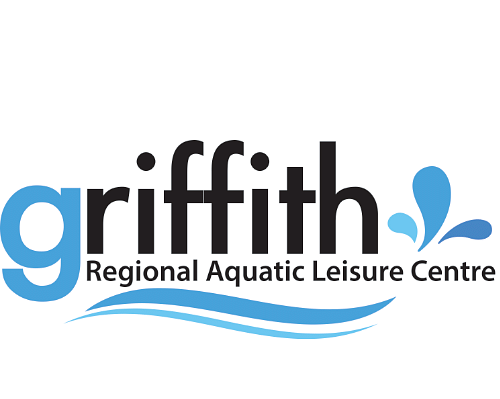Pet Owner Responsibilities
Abandoning and Dumping of Animals
It is NEVER acceptable to dump an animal and especially cruel to leave vulnerable puppies and kittens to fend for themselves.
In NSW under the Prevention of Cruelty to Animals Act, abandoning an animal is a cruelty offence and anyone who does this can be charged.
 Closure of Drop Off Boxes at Griffith City Pound & Rehoming Centre
Closure of Drop Off Boxes at Griffith City Pound & Rehoming Centre
Last updated: 28 February 2023
Why we're no longer using 24/7 drop off boxes
For us to provide better care for animals in need, and promote responsible pet ownership in the community, we need to rethink surrender intervention.
To start, we’re removing overnight cages or ‘drop off boxes’ from our Pound & Rehoming Centre.
Drop off boxes were introduced as a strategy to deal with stray and lost animals to give people the opportunity to ‘drop’ missing or lost animals at a shelter when it is outside of the Pound & Rehoming Centre open hours or there is no staff available to collect the animals, and without breaking the law, giving the animal a place to stay overnight.
Unfortunately, many people abuse this system and have been dumping their own unwanted pets in the drop off boxes without communication to our Pound & Rehoming Centre staff, this usually results the staff arriving the next morning with nervous and afraid animals sitting sad, confused and lost in drop off boxes.
It is a big change for the community and we are disheartened that we cannot offer this service for genuine stray and lost animals to be quickly reunited with their owners.
Major issues and challenges with 24/7 drop boxes
Animals dumped in the drop off boxes introduced a whole host of animal welfare and community responsibility issues. We now know the negative welfare outcomes for the animals and the pressure it places on our staff and system outweighs the intended benefits.
The Griffith City Pound & Rehoming Centre environment is not ideal to house many animals especially surrendered pets as it can be stressful for many animals and cause them to present negative behaviours due to lack of attention.
The animals can then often become guarded and protective towards people as being dumped has now caused them to be untrustworthy towards humans which is completely understandable. It then can take weeks for these nervous and afraid animals to start to trust our Pound & Rehoming Centre staff. During this time we need to be assessing there personality and judging what sort of home will suit this animals best. All the unneeded stress and confusion can simply be prevented if the owners call to surrender their pet and deal with the staff in the process, as opposed to just dumping their pet.
It is extremely difficult to rehome a dog or cat without a proper detailed history of the animal. We have many responsible pet owners willing to adopt from our Pound & Rehoming Centre although they usually are more likely to adopt a pet if they know for certain the pet has grown up around kids, never been involved in an attack and is dog or cat friendly. The reason for the surrender also impacts what sort of homes the animal can be rehomed to hence it is crucial we know the animal’s history to rehome it suitably and safely.
Negative Impacts for Animals Dumped in Drop Off Boxes
For the animals, the welfare concerns process is often traumatic and can have long-term effects on their mental health, such as:
- It risks delaying urgent treatment for injured or sick animals, or neonatal animals.
- Animals are often left without basic documentation, like their name, age, or information like where they were found. This information helpful for creating a pet profile, and it is crucial for reuniting animals with their neighbourhoods and returning them to their owners.
- Animals are left without any medical or behavioural history meaning our staff work overtime to figure out the reasons for surrender, placing the animal through an extended Pound & Rehoming Centre admission process.
- Prolonged time within the Pound & Rehoming Centre environment has negative animal welfare outcomes, which can be avoided through a managed intake process.
- The lack of behavioural information and context is a health and safety risk to our staff and the animals.
- It places pressure on our already overwhelmed resources. In an environment already fraught with unplanned seizures and animal welfare crises, our staff need all the time and preparation we can get so that we are in the best place to help animals in need.

Surrendering an Animal
Surrendering a pet is always a difficult decision.
When you initially decided to buy your pet as a puppy or kitten you agreed to take on this responsibility for the animals’ entire life therefore you need to be responsible if circumstances change and you need to rehome your pet, sometimes further costs will be involved to rehome your pet for example, ensuring their vaccines are up to date and the animals has been desexed.
There are many avenues you can investigate prior to calling Council to surrender your pet as a last resort.
We work with numerous Rescue Groups that we can help you be in contact with regarding the surrender of your pet. If your pet has had all its vet work complete you can also advertise them privately for rehoming yourself. See below for more options and information on rehoming your pet yourself.
If you have tried all avenues to rehome your pet yourself and you are struggling with your pet, please seek help and advice from us and chat with one of our staff about the next steps.
Whilst we do not charge a Surrender fee, Surrenders are by appointment only and if your animal can be assessed and fits the criteria for our rehoming process we may help on your behalf.
This means that we are able to have a discussion with owners who cannot, for whatever reason, keep their pets. The reason for the surrender impacts what sort of homes the animal can be rehomed to. It is crucial we know the animal’s history to rehome it suitably and safely.
It is extremely difficult to rehome a dog or cat without a detailed history of the animal, including details if the pet has been around children, has been around other pets and has never been involved in an attack.
If we are provided the information we need to better understand the animal then we can fast track their journeys to find loving forever homes.
In times when we are dealing with litters of puppies and kittens we can always assist these vulnerable animals and place you in direct contact with Rescue Groups. We can also facilitate with discounted desexing vouchers for the infant animals parents to prevent the unneeded breeding from happening again. We can direct you to get in contact with Friends of Griffith Pound Group who can provide discounted desexing vouchers for their subsidised desexing program. This program is supported by Griffith City Council and the 3 local veterinary clinics. Please note eligibility requirements apply.
We do not accept dangerous animals that have attacked other animals, people or stock.
Please do not turn up to our Pound & Rehoming Centre with no appointment expecting to have it surrendered on the spot.
How it works – Surrendering to our Pound & Rehoming Centre
- You must make an appointment before bringing your animal to our Centre.
- We are unable to accept Surrendered animals without a prior appointment.
- To make an appointment please call us between 8:15am and 4:00pm Monday to Friday on 1300 176 077. Our staff will then discuss the details of the Surrender process with you and advise you of the next steps.
What you will need to bring, once you have a confirmed appointment:
- Once you have spoken with our Animal Rehoming Team and have been provided with a confirmed appointment, you will need to ensure you bring all necessary paperwork and information with you
- All medical history and veterinary paperwork, including vaccination history and any medication requirements
- Information about your pet’s personality, behaviour and history, which will help us to provide them with the best care possible
- Dogs must be on leashes and cats in secure carry cages
Steps I can take to rehome my pet before contacting Council to Surrender my companion animal
Privately rehome your pet yourself
- Ask your friends and relatives if they can help to foster or adopt the animal.
- If the change to your circumstances is not permanent, could the animal go to a boarding facility?
- Advertise your pet on online platforms: If your animal is desexed, vaccinated and microchipped you can advertise them on many online platforms such as gumtree, trading post or social media avenues. It is your responsibility as a good pet owner to screen the people interested in rehoming your animal and making sure their family is suitable for your pet, you must also always be honest as to why you are rehoming your pet as this will help ensure the right homes enquire for your pet.
- Contacting online Rescue platforms for responsible advertising such as: Gumtree, Pet Rescue and the RSPCA. Click the links to go straight to these websites.
Directly contact rescue groups
Please see below links to many NSW based Rescue Groups listed and Government approved in NSW.
Anyone has access to these links and you can responsibly and respectfully reach out to any of the rescue groups via email or social media requesting help with the surrender or rehoming process of your pet.
There may be certain costs involved to rehome your pet for example for ensuring their vaccines are up to date, if the animal has been desexed or travel costs if a Rescue agrees to take your pet you may have to travel a distance to drop it the to the Rescue Group.
If your dog is a purebred and was purchased from a breeder you should always contact the breeder first if you decide you cannot keep the animal any longer. The alternative is to contact a breed specific rescue group for assistance.
With a small amount of travel involved to you, you may also contact RSPCA to take on your pet.
- List of all NSW Office of Local Government (OLG) approved Rescue Groups
- Pet Rescue - Help! I need to rehome my pet
- Pet Rescue – List of all Australia wide rescue groups
- RSPCA – Animal Surrender – What are my options?
- Griffith Cat Haven - Rescue
- Needy Paws Dog Rescue - Facebook or Needy Paws Pet Rescue Page
- Riverina and District Animal Rescue Inc. (RADAR Inc.)
- Friends of Griffith Pound – Volunteer Group promoting welfare of animals within our community - Website or Facebook
Simple Tips on Responsible Dog and Cat Ownership
Keep your animals healthy, safe and avoid fines by being aware of, and following, these essential tips:
Dogs
- To stay healthy and avoid boredom associated problems, dogs need to be exercised regularly.
- No matter how friendly, a roaming dog can be at risk of harm or risk of harming other dogs, animals and people in adverse situations or otherwise, so don’t allow your dog to roam.
- Ensure your dog is microchipped and registered. See here for more information on Pet Identification and Lifetime Registration.
- Carry bags so you can pick up your dog’s faeces from public places and put it in a bin.
- Ask your adjoining owner if your dog creates any nuisance problems, and correct them
- Train your dog not to bark. Dog trainers can also help to solve barking and other dog behavioural problems. Further information on how you can deal with Barking Dogs can be found on the NSW EPA website, by clicking here and a 'Dealing with Barking Dogs' fact sheet can be can be downloaded by clicking here.
- Ensure your dog is friendly and comfortable with people to avoid dog attacks.
- In public places, keep your dog under ‘effective control’. This means on-leash and restrained by the person holding the leash (unless the dog is specially exempted), and not more than four dogs per handler
- Take care to choose the best dog with characteristics that suit your circumstances
- Have your dog desexed if you are not a registered breeder. See here for more information on De-Sexing of Companion Animals.
- NEVER leave your dog unattended in a car, even on mild days. If dogs are left in cars during hot weather they are subject to dangerous conditions, but there really is NO safe situation to leave your dog unattended in a vehicle. While it may not feel hot to you, weather conditions can change quickly, and with them, your dog’s chances of survival. Even if the weather stays mild, cars are made of metal and glass which absorb heat, so they can heat up quickly at any time of the year. Temperatures inside a car can climb to more than double the outside temperature in a matter of minutes. More information can be found on the RSPCA website.
Training
Be sure to check in your area for local dog obedience classes. Dog trainers can help to solve barking and other dog behavioural problems.
Cats
- Cats should be contained inside or in a cat run, particularly at nights, to restrict roaming and potential nuisance to neighbours.
- They should wear a collar with name, address where it resides and the owner's contact number.
- Consider also attaching a bell to their collar to help reduce their threat to birds.
Tips on Keeping your Animal Cool during the Warmer Seasons
Animals (like us) can suffer from heat stress. It is very important on hot days to ensure that your pet has access to water at home.
The RSPCA list the following tips to manage heat stress and your pet:
- Ensure pets have easy access to shade and water throughout the day
- Have extra bowls of water in case one is tipped over
- Fill a takeaway container with beef/chicken stock, freeze overnight and give to your pet
- Place ice cubes in water bowls. Be careful, as some animals will avoid drinking the water if they are concerned about the floating ice cubes. A good alternative is to freeze half a water bowl the night before and top the remainder up with cool water when putting it out
- Provide extra shade areas in your backyard using shade cloth and umbrellas
- Fill a paddling pool (clams are especially popular) with water and let your pet play in it (under your supervision)
- Always walk your dog in the early morning or late evening to avoid the heat of the day
- Cool a ceramic tile or oven pan in the fridge or freezer and put it out for small dogs and cats to lie on
- Allow your outdoor animals to come inside the house and share the air conditioning or electric fan
Responsibilities of Dog Owners
Under the Companion Animals Act 1998:
- If a dog is in a public place it must be under the effective control of a competent person by means of an adequate chain, cord or leash. The exceptions to this are: dogs exhibited at a show or engaging in obedience or agility trials or a dog secured in a cage or vehicle or in an approved off-leash area;
- If a dog is being exercised in an approved off-leash area it must always be under effective control of a competent person;
- It is not permitted to walk more than four dogs at any one time in an on-leash area or an off-leash area;
- Greyhounds must be muzzled at all times when in a public place;
- If a dog defecates in a public place it is an offence not to remove the faeces;
- Dogs are prohibited in children’s play areas, food preparation/consumption areas, recreation areas, public bathing areas, school grounds, child care centres, shopping areas and wildlife protection areas.
- Penalty notices issued under the Act include:
| Penalty | Fine |
|---|---|
|
Not identify companion animal as prescribed - not dangerous/menacing/restricted dog |
$180 |
|
Companion animal not registered as required - not dangerous/menacing/restricted dog |
$330 |
|
Not notify change in registration or identification information - not dangerous/menacing/restricted dog |
$180 |
|
Failure to prevent dog escaping - not dangerous/menacing/restricted dog |
$220 |
|
Dog not wear a collar and name tag - not dangerous/menacing/restricted dog |
$180 |
|
Not immediately remove dog faeces from public place |
$275 |
|
Not deliver seized animal to owner/ Council/approved premises |
$660 |
| Owner of dog not under control in public place | $330 |
|
Owner of dog in prohibited place |
$330 |
| Deny an Assistant Animal entry into public buildings/place/transport | $330 |
|
Own of dog which rush as/attacks/bites/harrasses/chases any person/animal |
$1320 |
NB - All penalties are subject to regular change by the NSW State Government without notice.
Responsibilities of Cat Owners
Under the Companion Animals Act 1998:
-
All cats must be identified by a form of identification that enables a local authority to ascertain the name of the cat and the address or telephone number of the owner
-
Cats are prohibited in wildlife protection areas and food preparation or consumption areas
-
A cat must not interfere with the peace, comfort or convenience of any person in any other premises, or
-
Repeatedly damage anything outside the property on which it is ordinarily kept.
-
Penalty notices issued under the Act include:
Penalty |
Fine |
|---|---|
|
Cat not wear identification |
$180 |
NB - All penalties are subject to regular change by the NSW State Government without notice.
Cat Traps
Cat traps can be loaned out weekly to persons requiring them. Please refer to our fees and charges here and contact Griffith City Council for more information.
It is to be noted however, under the provisions of the Companion Animals Act 1998 cats within New South Wales are considered to have no boundaries and are free to roam. Due to this freedom we are unable to actively patrol with a view of seizing stray cats, and it is often difficult to determine someone's pet from a stray, homeless or feral cat.
Further Information
Companion Animals Act 1998
Companion Animals Regulation 2018
NSW OLG - Responsible Pet Ownership
RSPCA - Owning a Pet
It is NEVER acceptable to dump an animal and especially cruel to leave vulnerable puppies and kittens to fend for themselves. It is also illegal to dump animals and carries heavy penalties in NSW under the Prevention of Cruelty to Animals Act.







